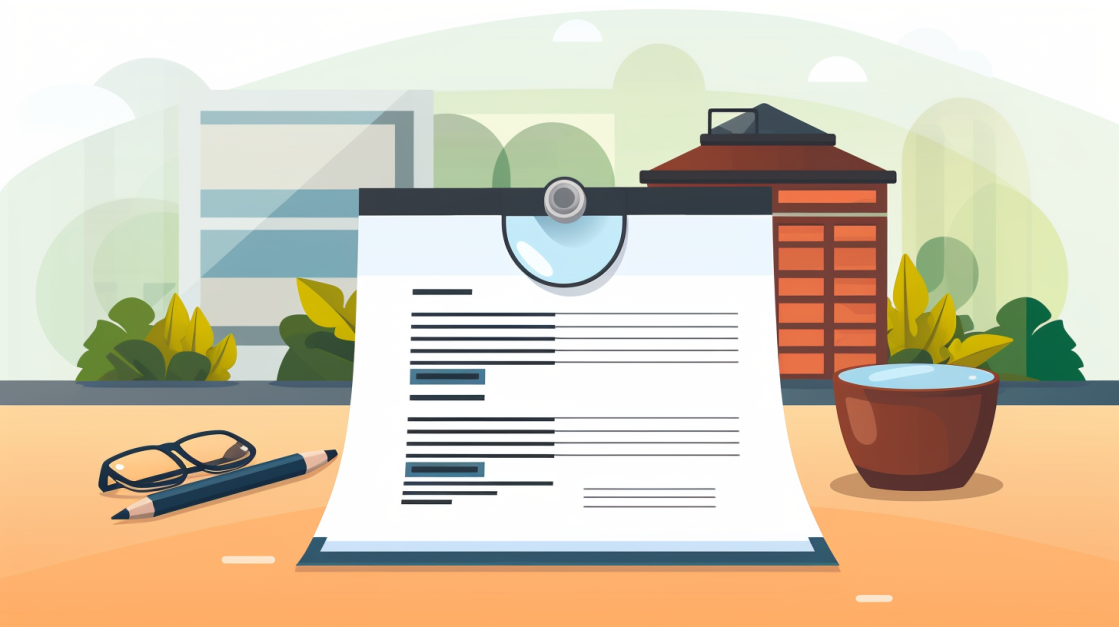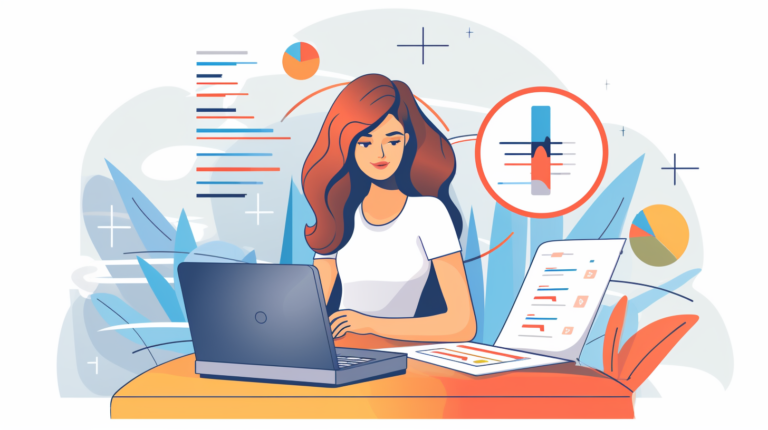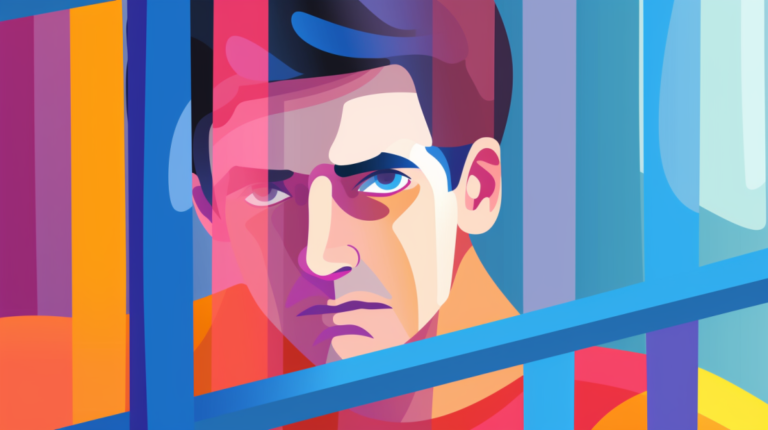When to Consider Bankruptcy as a Debt Solution

At times, a sea of overwhelming debt can make you feel as though you’re lost in stormy waters, desperately seeking a beacon of hope. Indeed, I know the sensation all too well – clutching at anything that might keep me above water amid increasing bills and financial duties.
However, after many late-night dives into the depth of personal finance researches, bankruptcy began to show some promise as a potential haven for those ensnared in substantial debt.
Interested to embark on a journey getting familiar with who’s best suited for it, when’s the right time to consider it and how exactly does one go about considering bankruptcy as a viable solution? Stay tuned!
Key Takeaways
- Bankruptcy can help if you are in deep debt. It’s a legal process that gives relief.
- There are two types of bankruptcy, Chapter 7 and Chapter 13. They work differently for different people.
- Filing for bankruptcy has pros and cons. It stops calls from debt collectors but hits your credit score hard.
- Talking to a lawyer or financial guide before filing for bankruptcy may be helpful.
Understanding the Basics of Bankruptcy
Bankruptcy is a legal process that provides relief to individuals or businesses who simply can’t fulfill their obligations to creditors. There are two main types: Chapter 7, which involves liquidation of assets, and Chapter 13 or “wage earners” bankruptcy, allowing for debt repayment over time.
Definition of Bankruptcy
Bankruptcy is a legal way out when you owe more money than you can pay back. It’s like a lifeline for people or businesses who are drowning in debt. This process puts a stop to pushy debt collectors and wipes some debts clean.
Keep in mind, it’s not an easy get-out-of-debt ticket. Plus, it comes with lasting hits to your credit score and reputation. There are different kinds of bankruptcy, such as Chapter 7 and Chapter 13 for folks like us; Chapter 11 suits businesses best.
Types of Bankruptcy: Chapter 7 and Chapter 13
There are two main types of bankruptcy that you might hear about. They are Chapter 7 and Chapter 13.
- Chapter 7 Bankruptcy: This is a option when you can’t pay your debts. It involves selling things you own that are not needed for life to pay back money owed.
- How Does it Work: Your assets, or stuff you own, get sold off and that money is used to pay people or businesses you owe money to.
- Who Can Use it: Both normal people and businesses can file for this kind of bankruptcy.
- Chapter 13 Bankruptcy: This route lets you make a plan to slowly pay off your debts over three to five years.
- How Does It Work: You work with legal experts called bankruptcy trustees who help design a debt repayment plan for you.
- Who Can Use It: It can be filed by any person but is not allowed for businesses.
When to Consider Bankruptcy as a Debt Solution

Bankruptcy is a strong move you might think about if your debts are too big. It’s important to look at this choice when other ways to handle debt won’t work out. Your financial plan is in a really tough place that can’t seem to get better.
It could be because of huge credit card debt or unpaid medical bills piling up. You may also owe money for things like a mortgage, car loans, or student fees that you can’t pay off on time.
Living in fear of phone calls and letters from debt collectors isn’t healthy either.
For instance, losing your job with no hope of finding another one soon might force you towards bankruptcy. Same thing goes if there’s an unexpected event – such as an accident or illness – that takes away your ability to earn money for awhile.
One more case where bankruptcy makes sense is if it will wipe out most of the debts holding you back. This allows a fresh start towards living without the threat of creditors coming after your hard-earned income all the time.
Before moving forward though, getting help from trusted people who know how these processes work proves useful most times; they include professionals like bankruptcy attorneys and financial advisors capable offering good advice based on their deep knowledge about our complex legal system plus years spent dealing with similar situations faced by others just like yourself trying find peace mind amidst challenging circumstances associated considerable financial instability due varying factors beyond control triggered unavoidable sudden changes life circumstances causing significant adjustment problems past leading current predicament subsequent search feasible effective resolution options permanently address underlying issues head-on aimed achieving desired long-term stability throughout course process till completion resulting overall improvement terms personal condition perspective going ahead into future filled uncertainty doubts fears anxieties memories failure pain regret equally them replaced renewed vigor vitality optimism determination resilience adapt adjust accept actual reality deals life coach mentor therapist counselor specialist expert area deemed crucial critical essential key central core aspect facet segment piece part component element constituent portion determinant factor influencing affecting impacting determining shaping deciding outcome success triumph victory achievement realization attainment accomplishment fulfillment completion perfection actualization exactitude precision accuracy correctness righteousnessness truthfulness honesty sincerity frankness open-mindedness integrity virtue nobility honor dignity respect regard esteem admiration adoration affection love care concern consideration thought kindness generosity magnanimity tolerance patience perseverance dedication devotion commitment allegiance loyalty faith belief trust confidence assurance certainty sure
Pros and Cons of Bankruptcy
Bankruptcy can offer a fresh start, wiping out many debts and giving you financial relief. Yet it’s important to remember the downsides – bankruptcy can significantly affect your credit score and make future borrowing tough.
Benefits of Bankruptcy
Bankruptcy has some real pluses. It stops calls from debt collectors. It wipes out many types of debts, like credit card bills and medical costs. Bankruptcy can also stop a home foreclosure or car repossession.
This gives you breathing room to start over in making your budget work. I know filing for bankruptcy may feel bad now, but it can help improve your credit score later on because you are not carrying around so much debt anymore.
Downsides of Bankruptcy

Filing for bankruptcy can lead to a big drop in your credit score. This makes it hard for you to get loans or new credit later on. Also, losing property is part of the deal too. The law says they must sell your stuff like cars and houses to pay back those who gave you money.
There are other types of debt that bankruptcy doesn’t cover such as student loans erasable only under special rules, or tax debts owed to the government – these ones stick around no matter what! Not only that but going through a complicated paperwork process and showing up for court dates takes time from work and costs extra money.
The biggest hit might be how long bankruptcy stays with you. It can stay on my credit report for ten years straight! That’s like a bad dream that keeps coming back night after night.
Comparing Debt Relief Options: Bankruptcy vs. Debt Settlement
In this section, we’ll delve into the ins and outs of debt relief options by comparing bankruptcy to debt settlement, defining what each method entails, who each option is best suited for, and how these methods might be the answer to resolving your financial burden.
What is Debt Settlement?
Debt settlement is a plan to make your debt smaller. In this plan, you work with a company that talks to the people you owe money to. They try to get these people to agree on less money than what you owe.
This could be done in one big payment or in small payments over time. But, it’s not all good news though – your credit score might go down and there may also be tax problems.
Who is Debt Settlement Best For?
Debt settlement works well for people with a lot of debt. If you owe money on credit cards or have medical bills, this could be a good choice. It’s an option if bankruptcy doesn’t fit your case or the results scare you.
In debt settlement, we talk to those who lent you money. We try to make them take less than what you owe them. This path helps lower how much debt you carry and might stop you from having to declare bankruptcy.
Impact of Bankruptcy and Debt Settlement on Credit Score
Bankruptcy and debt settlement both harm your credit score. Bankruptcy leads to a big fall in your score. This drop happens because you did not pay back all the money you owe. Debt settlement also lowers your score but not as much as bankruptcy does.
Here’s why – in debt settlement, you only pay part of what you owe instead of the whole amount. Both these options will stay on your credit report for years, making it harder to get new credit cards or loans during this time.
Bankruptcy Filing Process
Filing for bankruptcy involves key steps like submitting detailed financial information, liaising closely with a bankruptcy trustee and wrapping up with a compulsory debtor education course, all of which we will delve deep into in this section – so stay tuned!
Submitting Financial Information

You must give all details about your money to file for bankruptcy. This includes what you earn, own, owe and spend. It’s a key step in the process of filing for bankruptcy. This data shows how much money troubles you have.
Based on this, the court chooses which sort of bankruptcy fits best for you: Chapter 7 or Chapter 13. Make sure to fill out all paperwork with care and truthfulness then hand it over to the court.
Don’t try doing everything by yourself though! Get help from a professional like a lawyer or financial guide who knows how everything works in detail.
Working with a Bankruptcy Trustee
You get help from a bankruptcy trustee when filing for bankruptcy. They take care of your case with great care. The job of the trustee is to make sure all steps go as planned. Their aim is to share out what you own in a fair way.
They check and see what you can pay back to those whom you owe money (creditors). A chapter 7 or chapter 13 route? The trustee will decide based on your finances. They look at what you have, how much debt there is, and income too! Trust the bankruptcy trustee as they guide you through hard times.
Completing a Debtor Education Course
You must take a debtor education course to file for bankruptcy. The court says you have to do it. This class helps you understand about money and debts. It shows ways to pay your bills and make better choices with your cash.
This class can be in person or online. Usually, it takes a few hours and then there might be a test at the end. You need to pass this class so that the court knows you are ready for a fresh start after bankruptcy.
Consequences of Declaring Bankruptcy
Declaring bankruptcy can have a big impact on your life. Your credit score may drop. This makes it harder to get loans or credit cards in the future. Bankruptcy might also cause you to lose some of your stuff, like property and investments.
The law says they must be sold to pay off what you owe.
Also, people will know that you declared bankruptcy. It’s not a secret because it gets recorded in public files. This might hurt your reputation, especially if you own a business. Above all, bear in mind that the decision is serious and should only be made after talking with an expert.
Let’s talk about how long this all lasts! Bankruptcy stays on your credit report for a long time – up to ten years depending on the type of bankruptcy filed! It means securing loans or getting good interest rates could become tough dreams for you during these years.
Alternatives to Bankruptcy
Before declaring bankruptcy, it’s important to explore alternatives like debt management plans and debt consolidation that could provide a pathway out of your financial crisis without the severe consequences of bankruptcy.
Understanding Debt Management Plans
A debt management plan can help with your money woes. This plan works by setting up a way to pay back what you owe over time. It makes the process easier and less stressful. With this plan, a counselor talks to your creditors for you.
The goal is to lower costs, make new payment rules or even cut down on how much you owe in total. You pay one set amount each month until all debts are gone. These plans often take three to five years to finish but they could save you from bankruptcy.
Considering Debt Consolidation
Debt consolidation is one way to deal with a lot of debt. It takes all your debts and puts them into one big loan. This can make paying back the debt easier and may save you money on interest rates.
A person with lots of unsecured debt, like credit card bills, might find this very helpful.
There are things to think about when choosing between bankruptcy or debt consolidation. How much money you owe, how much money you make and what your financial goals are all matters.
If done right, debt consolidation could help manage your finances better without having to file for bankruptcy.
Frequently Asked Questions
In this section, we’ll tackle some frequently asked questions about bankruptcy such as, “Can I file for bankruptcy if I’m in a debt relief program?” and “How long does bankruptcy stay on my credit report?”, providing you with pertinent details to clarify common misconceptions and ease your understanding of the process.
Can You File Bankruptcy If You’re In A Debt Relief Program?
Sure! If you’re in a debt relief program and things get worse for you, bankruptcy is an option. It’s not a step to take lightly though. Bankruptcy can give people buried in debt a fresh start by removing or lowering types of debt like credit card bills.
But it has downsides like hurting your credit score and making it possible to lose stuff that counts as assets. Choosing to file should only happen after talking with someone who knows all about bankruptcy law.
So even if you’re working on paying your debts through another plan, declaring bankruptcy could become a must-do move for financial safety.
How Long Does Bankruptcy Stay on My Credit Report?
Bankruptcy stays on your credit report for a while. If you file for Chapter 7 bankruptcy, it will stay there for 10 years. For Chapter 13 bankruptcy, the period is shorter with only seven years.
This can make it hard to get new credit cards or loans. It’s an important factor to think about before choosing bankruptcy as a way out of debt trouble.
Conclusion: Making the Right Decision for Your Financial Health

Bankruptcy can help when your debt is too big. But, it should be the last choice. Be sure to look at all other options first. Talking to a pro in bankruptcy law will help you make a sound plan for your money health.
FAQs
1. What is bankruptcy as a debt solution?
Bankruptcy is a legal way used to get rid of your financial obligations and start fresh when you can’t pay back your debts.
2. When should I think about bankruptcy?
You should consider bankruptcy if creditor negotiations, debt restructuring, or other debt solutions fail to solve your financial distress.
3. Does filing for bankruptcy harm my credit history?
Yes, Bankruptcy shows on your credit history which can affect future loan approval but there are also ways like credit repair offered by some agencies after the discharge to help enhance it again.
4. Can all types of debts be forgiven in bankruptcy?
No, not all debts go away with a bankruptcy discharge from court so you have to plan wisely regarding your liabilities before choosing this financial strategy.
5.No one wants long-term finanical implications due to Bankruptcy then why do some businesses choose Bankruptcy?
Many businesses use Chapter 11 bankrutpcy for protection and restructuring without complete insolvency; its more about getting hardship relief than becoming debt-free overnight!
6.What’s expected after I file a petition at the Bankurupty Court?
Your case will exit in court, many things happen like creditor negotiations stop and perhaps with proper financial planning under expert advice you will approach towards finanical recovery.






